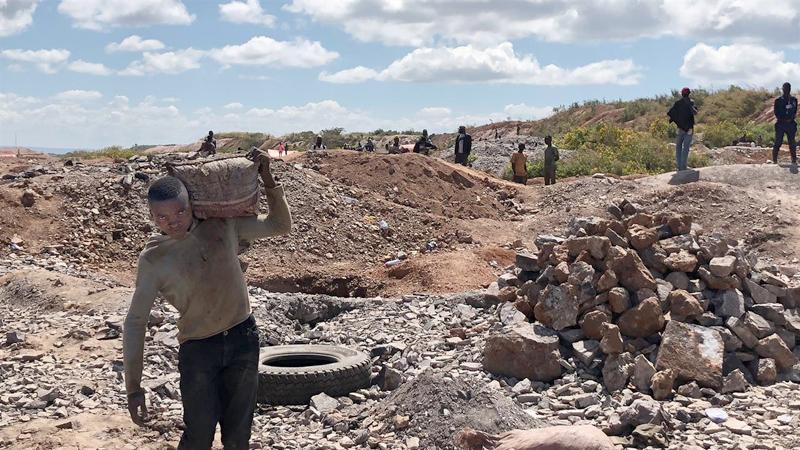
The improvement in the global economy, following the financial crisis of 2008-2009, provided an opportunity for countries to develop new policies towards addressing long-term issues, such as low economic growth, inequality, economic diversification, and also for identifying and making solutions for deep-rooted barriers to development.
The significant acceleration in the world Gross Domestic Product (GDP) in several developed economies, in East and South Asia, present a substantial change in the world economy.
Argentina, Brazil, Nigeria and the Russian Federation have improved, according to their growth between the years 2016 and 2018
Have you thought of investing in Africa? What is your perception about investing in Africa? Some foreign investors still hesitate to move into the African Continent because foreign investment decisions often depend on several factors. The main factor is too much risk, but risky investments may mean high profits.
Until March 2013, Africa was identified as the poorest Continent in the world, but the World Bank hopes that most African countries will reach ‘middle income’ level by 2025, judging by their economic growth rates.
From 2000 to 2018, North Africa and Sub Saharan Africa (SSA) increased their GDP from USD 613.5 to 3,030.9. As a result of this sustained economic growth, investors have shown an interest in Africa, more than in other countries.
From 2007 to 2013, SSA grew its Foreign Direct Investments (FDI) at a rate of 19.5%. It is important to study how Africa will maintain sustainable economic growth and provide substantial competition for Asian countries in the coming years.
This story has only just begun, the route we can see is through the 1990s, with the end of the Cold War, and positive initiatives of democracy and economic and regulatory reforms in several African countries.
Inflation was controlled, foreign debt and budget deficits gradually reduced, many State-owned enterprises privatised, and regulatory and legal systems practised accordingly. Their economies were opened to international trade, in many African countries.
African economies have been appropriately managed in the past decades, more so than our own economy. Their management capabilities are significant. In 1990, the incremental economic reforms started, and became the milestone to sustainable economic growth.
The African labour market mainly consists of a young population which provides the highest labour intensive production and leads to low production cost. (The hourly wage rate is less than USD 0.5 compared to USD 10-11 in the UK, and 7-8 in the USA). Some estimates indicate that more than half of Africa’s youth are still unemployed. This is a youthful continent, it is expected to have the fastest urbanisation in the world by 2035, and also a larger working-age population than either China or India. However, China will lose at least up to 85 to 100 million jobs within the next decade, due to rising production costs and automation of the workforce.
If Africa can capture one-tenth of these opportunities, it will double its workforce. If this opportunity is seized by most of the African states, we can see a situation such as the second Industrial Revolution during the 1870-1914 period.
The common view among economists is that Africa’s growth in past decades depended on natural resources rather than finished products. Large natural resource deposits strengthen developing value chains. Oil and natural gas production between 1980 and 2012 increased from 53.4 billion barrels to 130.3 billion barrels, marking the symbolic achievements of their economy
In 2017, Congo alone produced 58% of the world cobalt production, and South Africa produced 69.6% of platinum, (both used for manufacturing electronic related products). Investing in these countries will reduce the manufacturing cost of the final product and make it affordable for a majority of people, (especially low-income groups), in developing countries.
Autocracy, social and political instability have been a strong barrier to economic development. Leaders made changes to turn the Continent towards democracy and good governance - democracy influences governments to permanent Constitutions, basic personal and political rights, fair and free elections and independent courts of law.
Till 1980, most African countries were ruled by dictators, a democratic election in Nambia was conducted in 1989, marking a new path in democracy and political reform. Regular democratic elections have been taking place in many parts of Africa. Over 35 ruling party leaders changed through a democratic process - the last presidential election in Kenya was the best example. Democracy makes a favourable business environment and attracts investors to the Continent.
Africa has taken an incredible jump in mobile technology. 2G networks cover Sub-Saharan Africa, where mobile technology has significant growth, covering 90% of the population by the first quarter of 2018. In 2011, Africa overtook Latin America and is now the second biggest mobile phone market in the world after Asia, providing 747 million mobile connections in 2017. The rising speed of Mobile technological adaptation, creates opportunities for application development and innovation of new products. For instance, Appsafrica.com promotes mobile tech innovation, mobile consultancy and business development services across Sub-Saharan Africa.
African countries have developed several important sectors, such as policies aimed at education, health, access to water, employment opportunities and other factors that improve the quality of life. The quality of life is not only impacting economic growth, but also the long-term stability of the economy.
World Bank reports indicate that the poverty rate in Africa has been falling since 1995. African countries target the reduction of poverty to below 20% by 2030, below 10% by 2045 and to below 3% by 2063.
According to current trends, with a solid economic foundation, political and social reform, together with resilient growth rates, Africa has the potential to compete with Asia’s economic growth.
Sri Lanka was once economically better off than Singapore, and we may have to say something similar about the African Continent, in the near future.
The writer is Head of Consultancy, National Institute of Business Management.
